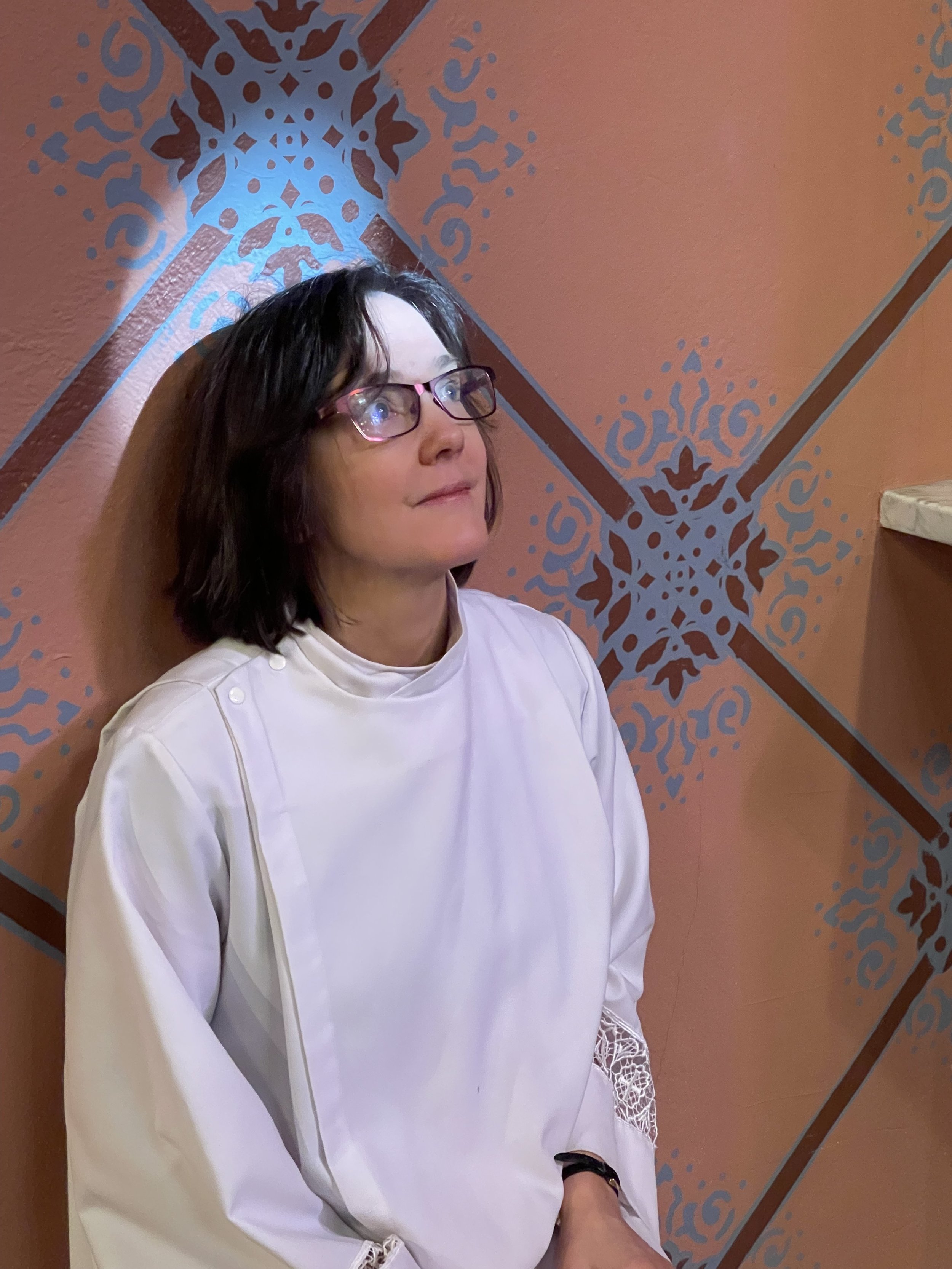As I write these words, my lamp lit desk is an intersection of Advent and Christmas. Through the bay window on my left, ice skaters are circling the rink at Manhattan Square Park as the loudspeakers blast “Have a Holly Jolly Christmas.” Behind the chapel door (which I’ve propped open) across the hall to my right, the consort rehearses “Comfort, comfort ye my people” from the organ gallery across empty pews. It’s Christmas on my left, and Advent on my right. What, then, is the “festival” of our lessons and carols tonight? Christmas or Advent? In truth, it’s both.
Church people try to separate the two because each is a distinct season, a distinct experience. The act of separating Advent from Christmas is both necessary and impossible. Some of us use Advent to focus our yearning for God beyond Christmas day, if not as a refuge from holiday madness. But Advent, of course, is more than a hiding place from Christmas. Christmas can’t be hidden from Advent, not theologically, biblically, historically, eschatologically, spiritually, or even liturgically. Advent is for eternally travelling to Bethlehem, so we travel with the angels tonight ahead of the Christmas event, no less than the shepherds travelled with them at the event, and no less than the magi who followed the star after the event. Advent and Christmas flow into each other because God acts in human history in ways don’t fit with linear time.
Eric Milner- White, the dean of King’s College, Cambridge, came home from World War I alive. He reworked the original 1880 version of Lessons and Carols service to speak to the people of the trenches: to the survivors, to those died, and to their families. It was Christmas, but his heart was with the Advent people of Isaiah, walking in the darkness of war. He adapted the Festival of Nine Lessons and Carols, the one the world hears broadcast live from BBC every Christmas Eve, for those who walked in darkness but were yet to see a great light. Nine years later, when he introduced what an Advent service of lessons and Carols might mean, he wrote that it should “help us express the desire of all nations and ages,” the purpose of which should be “not to celebrate Christmas but to expect it.”
More than the birth of Jesus, Advent anticipates a new world order, the birth of a new “time” and “place” where God will reign with a peace that passes all understanding. Christmas anticipates the very same. The difference, if there is any, is what the longing looks like. In Advent, it is seen in human faces registering terror, if not resignation, to what has come upon them in devastation and exile. In Christmas, the longing is seen in the faces of the mother and infant as they behold each other for the first time. “Advent” and “Christmas” are simply the names for the wild, radiant longing that sleeps underneath our despair or resignation in the world as it is. (Either is also a good name for the slow awakening we feel when we realize this is not the world God wants for us, and there is more to come.)
As I write these words, there is Christmas celebration on the ice rink to my left, and Christmas expectation in the sanctuary on my right. Sometimes, we can’t keep the celebration separate from the expectation. If the Church should hope to shine Isaiah’s ever-ancient, ever-present light into the trenches of the present day, and should that light reach anyone who may be compelled to celebrate it, then we should rejoice. And even sing a Christmas carol or two. In Advent. Because the joy of God is not a joy to be reasoned with.







